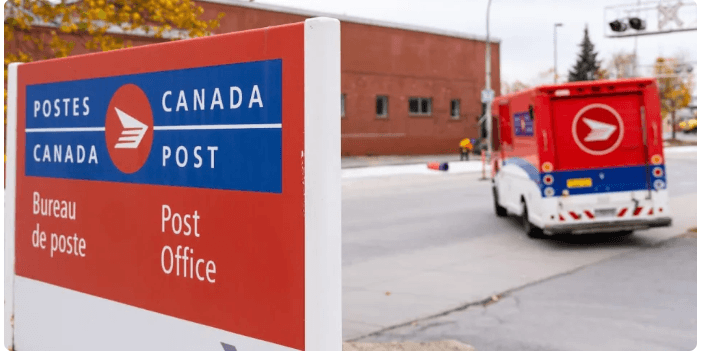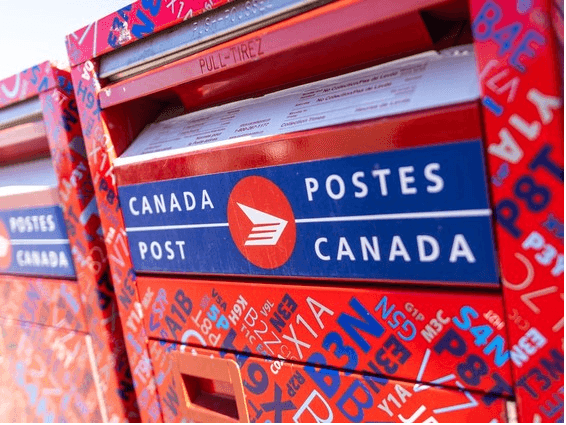
anada Post workers are poised to go on strike as early as this Friday, exactly one year after negotiations for a new contract began. This situation comes amid rising tensions between the company’s management and the Canadian Union of Postal Workers (CUPW), as several key issues remain unresolved. While the union is in a legal position to strike, Canada Post is working to avoid further disruptions that could worsen its already precarious financial state.
Background of the Negotiations
Negotiations between Canada Post and the CUPW began on November 15, 2023. However, despite a year of talks, the two parties remain deeply divided over critical issues such as wage increases, pension plans, and medical leave. As a result, CUPW announced it would be in a legal position to strike as of Friday, after issuing the legally required 72-hour notice for both its rural and urban mail carrier bargaining units.
The union, representing workers in both urban and rural areas, has not yet decided whether to take immediate strike action. According to CUPW president Jan Simpson, the decision will depend on the progress made in the coming days of negotiations. This uncertainty regarding the potential strike action has only fueled anxiety, especially with the busy holiday period approaching when postal services are most in demand.
The Strike Mandate and Union Response

CUPW has reported that an overwhelming majority of its members—over 95%—backed the strike mandate in a recent vote. This strong approval is a clear sign of the union’s determination to secure better working conditions and benefits for its members. It also reflects a growing frustration among workers, who feel the negotiations have been dragging on without substantial progress.
The strike mandate is a symbolic move that shows the union’s readiness to take action, though this does not necessarily mean a strike will happen immediately. The union has emphasized that any decision on a strike will depend on Canada Post’s behavior at the bargaining table in the coming days.
The Issues on the Table: Wages, Pensions, and Leave
The issues that are dividing CUPW and Canada Post are complex and multifaceted. One of the primary points of contention is wages. Canada Post has proposed annual wage increases of 11.5% over four years. However, the union argues that this offer is insufficient given inflation and the rising cost of living in Canada. CUPW insists on a more significant increase to compensate for years of stagnant wages and the rising cost of living faced by Canadian workers.
Pension plans are another major sticking point. CUPW is seeking guarantees to preserve and improve retirement benefits for its members, particularly as public pension schemes have come under increasing scrutiny. The union wants stronger protections and improvements for the pensions of its workers, especially in light of the growing economic uncertainties.
Medical leave is yet another area of disagreement. CUPW is advocating for a more equitable and accessible sick leave system in the face of increasingly demanding working conditions. The COVID-19 pandemic has only amplified these concerns, as many workers faced prolonged illnesses without sufficient support or compensation.
Canada Post’s Financial Struggles
In the face of these union demands, Canada Post is dealing with a worsening financial situation. The Crown corporation has accumulated losses totaling $3 billion since 2018, a significant amount that hampers its ability to meet the union’s demands. In the first half of 2024, Canada Post reported a loss of $490 million, continuing a downward trend due to lower volumes of transaction mail, rising delivery costs, and increased competition from parcel delivery services post-pandemic.
Canada Post’s business model has increasingly been challenged by the rise of private competitors, which have rapidly adapted by offering more flexible, lower-cost services. These companies rely on contract drivers, enabling them to offer cheaper prices and greater convenience with evening and weekend delivery. These low-cost business models have proven to be a direct challenge to Canada Post, which has struggled to adjust to this new dynamic.
The Impact of a Strike on Services and Consumers
The threat of a strike has already significantly impacted Canada Post’s revenues. Due to the uncertainty surrounding the situation, many retailers have switched to other service providers to avoid potential disruptions during the crucial holiday season. Additionally, mail and parcel volumes have dropped significantly as customers anticipate delays in their deliveries.
Rural areas, in particular, are likely to feel the brunt of a strike more than urban areas. Rural communities rely heavily on postal services for sending important mail, parcels, and receiving essential goods. A strike could severely disrupt these services, affecting both residents and local businesses.
Canada Post’s Proposals and Future Negotiations
Canada Post has put forward a series of reforms to address the financial challenges it faces. One of these proposals includes introducing a more flexible and cost-effective delivery model, which would involve parcel delivery seven days a week. This proposal aims to meet the growing demand for fast and reliable delivery services while reducing operational costs.
The model proposed by Canada Post is partly inspired by the strategies used by its private competitors. However, CUPW has expressed skepticism about this approach, arguing that it could place additional strain on workers without significantly improving their conditions or wages. The union also insists that Canada Post must preserve quality jobs rather than turn to lower-cost, potentially precarious work models.
Conclusion: The Future of Canada Post and Its Workers
The current situation facing Canada Post is one of a standoff between the needs of the company, which is fighting for its financial survival, and the demands of workers, who are seeking to secure fair and stable working conditions. The outcome of the negotiations between CUPW and Canada Post will likely remain a key issue in Canadian public policy in the years to come.
With millions of Canadians relying on Canada Post’s services, a strike would have far-reaching consequences not just for workers, but for consumers and businesses as well. The federal government, as the owner of the corporation, may play a role in mediating the conflict, but the resolution of this dispute will largely depend on the willingness of both sides to reach a compromise.
As the clock ticks down, all eyes are on the final negotiations, with hope that an agreement will be reached before the dispute turns into a disruptive strike that could leave lasting scars on the Canadian postal landscape.


